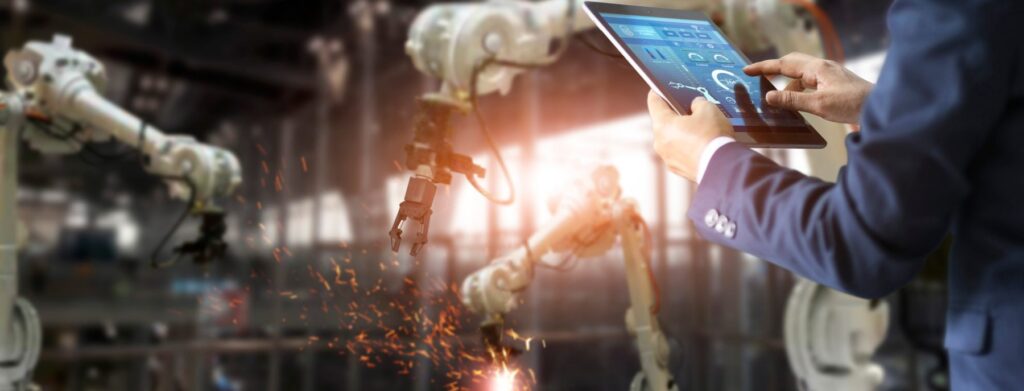Precision agriculture is undergoing a transformative revolution with the integration of AI Artificial Intelligence and IoT Internet of Things technologies, redefining farming practices to enhance efficiency, productivity, and sustainability. AI-powered algorithms analyze data collected from IoT sensors deployed throughout fields, including soil moisture sensors, weather stations, and crop health monitors. This data-driven approach enables farmers to make informed decisions in real-time, optimizing resource allocation, crop management, and operational efficiency. One of the significant advancements in precision agriculture is the ability to monitor and manage crop health with unprecedented accuracy. IoT devices equipped with sensors can detect subtle changes in soil conditions, moisture levels, and nutrient content, allowing farmers to adjust irrigation schedules and fertilizer applications precisely. AI algorithms process this data to provide actionable insights, such as identifying areas of nutrient deficiency or pest infestation early, enabling timely interventions to mitigate crop losses and maximize yield.

Moreover, AI and IoT technologies facilitate precision planting and harvesting techniques, improving seed placement accuracy and optimizing harvest schedules based on crop maturity and weather conditions. Smart machinery equipped with GPS and AI-driven algorithms can autonomously navigate fields, adjusting planting depths and row spacing to maximize seedling growth while minimizing soil erosion and resource consumption. This precision not only enhances crop uniformity and yield but also reduces labor costs and environmental impact. Furthermore, precision agriculture enhances sustainability by promoting efficient resource management and minimizing inputs such as water, fertilizers, and pesticides. By leveraging AI to analyze historical data and environmental factors, farmers can implement precision irrigation systems that deliver water directly to plants based on real-time moisture levels, reducing water wastage and runoff. Similarly, AI-driven pest management strategies enable targeted application of pesticides only when and where necessary, minimizing chemical use and environmental contamination.
Additionally, AI and IoT enable data-driven decision-making at every stage of the farming process, from crop planning and soil preparation to post-harvest management and logistics. Integrated farm management platforms collect, analyze, and visualize data from multiple sources, providing farmers with comprehensive insights into field conditions, production costs, and market trends. This holistic approach empowers farmers to optimize crop rotations, improve supply chain efficiency, and make strategic business decisions that enhance profitability and long-term sustainability. Looking ahead, the continued evolution of AI and IoT technologies in precision agriculture holds promise for further innovations and advancements. Future developments may include autonomous drones for aerial monitoring and crop spraying, blockchain technology for transparent supply chain management, and AI-powered predictive analytics for weather forecasting and market demand projections. As these technologies become more accessible and integrated into agricultural practices worldwide, they have the potential to revolutionize the global food system, ensuring food security, environmental stewardship, and economic viability for farmers and communities alike.